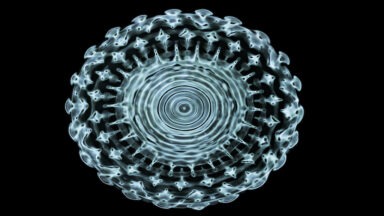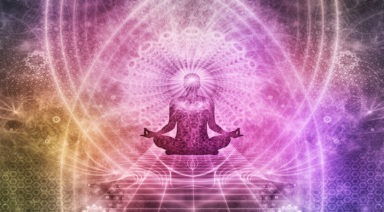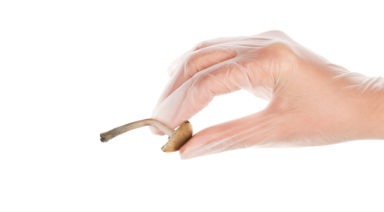Criminalizing Plant Medicine; Suppression of a Sacred Human Right

The criminalization of plants with psychoactive properties has a long and convoluted history. In the U.S. lately, reform and an easing of policy regarding certain plant medicine seems to be upon us. But stalwarts of the country’s failed war on drugs continue to push back, ignoring statistics that show the medicinal value and societal benefits these plants can offer.
A War on Plant Medicine
The war on drugs has been labelled a failure time and time again from members on either side of the political spectrum. The criminalization of medicinal plants as drugs has resulted in the incarceration of millions, while drug cartels become increasingly dangerous and more aggressive.
A turning point occurred in 2014 when the states of Colorado and Washington decided to legalize and regulate marijuana the same as alcohol. Within a year, millions of dollars in tax revenue were accrued and continued to double almost every year after, with the plant being taxed as high as 30 percent in some cases.
This tax revenue goes primarily to schools for needed upgrades, with a smaller percentage aimed at substance abuse treatment, youth prevention, and public health programs.
In Colorado, data showed there was a 28 percent decrease in youth marijuana use, despite opponents claiming the opposite would inevitably occur. In Washington, arrests from marijuana related crimes plummeted 98 percent and in Colorado arrests were down by 50 percent.
But up until this movement, criminalization has packed the U.S. prison system, giving it the largest incarcerated population in the world. In 2012, there were nearly 750,000 arrests for marijuana-related offenses alone. Often times these arrests are made for non-violent crimes that result in jail time due to mandatory minimum sentences. Unsurprisingly, these arrests disproportionately target minorities.
After Colorado and Washington legalized the recreational sale of marijuana at the state level, it set off a chain reaction of other state initiatives to decriminalize the plant, with 29 states legalizing the plant as medicine. Although it has remained illegal at the federal level, a combination of constitutional doctrines and a Justice Department memo deprioritized the prosecution of the plant.
But now, that memo has been rescinded and government resources may be used again to prosecute the use of a plant with medicinal value that continues to generate revenue for programs that positively impact society. Not to mention the fact that 93 percent of voters in the U.S. support the legalization of cannabis at some level. This will likely perpetuate the cyclical problems from the war on drugs the U.S. has been facing.

With all of the transactions that have been made through sales of marijuana, a government crackdown will likely lead to increased money laundering and more cash on the street. More cash on the street will lead to more crime, robberies, and violence – clearly a step back in the direction from which we came.
Sacred Plant Medicine
In many cultures, psychoactive plants are used as a religious sacrament for rites of passage and shamanic ceremonies. Holistic healing with herbs and plant medicine is very common outside of the western world, and the philosophy behind their use is reflective of the dichotomy between modern medicine and ancient traditions.
Modern medicine is often founded on a distrust of nature and treatment of humans as a machine rather than a being with a soul. Modern medicine’s focus concentrates on the ability to dominate nature and achieve immediate effects, while holistic plant medicine considers the entire health of the body an spirit with gradual solutions.
Caffeine is a psychoactive drug from a plant that society deems acceptable because of its value to the economy; it keeps you alert, productive, and narrowly focused on the task at hand. It’s also an addictive drug that is highly profitable, the perfect tool for a capitalist society. Opioids are another drug that are highly addictive and have created an epidemic in our society, but one the government drags its feet in regulating due to its extreme profitability.
But once a plant medicine begins to expand consciousness and allow a user to think beyond society’s established paradigms, that’s when it begins to become dangerous to the system. These plants are often able to curtail the effects of drug addiction and are non-addictive themselves. Due to these inherent traits, they have very low potential for profit and, in some cases, influence users to question the controlling paradigms our society has established. They are therefore made illegal.
Within the past few decades there have been definitive studies showing plants with psychedelic properties can reverse the effects of depression and addiction. In some cases, including ibogaine, the use of certain psychedelic plants as medicine can cure drug addiction from one dose.

Other organic compounds with similar properties, like psilocybin in mushrooms, are starting to be recognized as effective tools for combatting depression in completely different ways than modern medicine. Unlike most antidepressants that use serotonin reuptake inhibitors, or SSRIs, psilocybin has been found to instead reset a mechanism in the amygdala that is responsible for emotional responsivity.
A recent ballot measure was proposed by a California mayoral candidate to decriminalize mushrooms containing psilocybin. Some believe within the next few years the drug will at least be approved for clinical treatment thanks to the work of groups like MAPS. Unlike marijuana, it’s understood the tax revenue from psilocybin mushrooms won’t be significant. Its approval would be made because of the positive impact it could have on people suffering from untreatable depression.
As these applications for plant medicine are brought to the forefront of public attention with an empirical approach true progress will continue to be made. Scientific facts and data should be given primary consideration over antiquated stigmas, and one person or party’s desire to be right shouldn’t trump society’s demand for alternative plant medicines.
Scientists Find DMT Produces a Waking Dream State

Since the beginning of humanity, dreams have played an important role in spirituality, with shamans and sages interpreting them for their deeper meaning. In modern times, Freud and Jung have brought dream study to a new level, exploring the relationship of dreams to the subconscious and unconscious, looking for ways that a deeper self tries to communicate with the conscious one. And now, we’ve come to an even greater look at dreams via the influence of natural plants that contain what has been termed “the spirit molecule” — DMT (dimethyltryptamine). Researchers are now studying DMT’s ability to actually create a type of waking dream.
DMT is well known to neuroscientists, avid users of hallucinogenic plants, and ethnobotanists. The DMT compound produces brief and intense visual and auditory hallucinogenic experiences, whether consumed through ayahuasca, or as an isolated chemical — a white crystalline powder derived from plants found in Mexico, South America, and parts of Asia.
Medical News Today reported that the chemical root structure of DMT acts as a non-selective agonist (a substance that initiates a physiological response when combined with a receptor) at most or all serotonin receptors in the body’s cells. Serotonin has been called the happy chemical because it contributes to wellbeing and happiness. DMT is also produced naturally in the body in the lungs and in minute doses in certain areas of the brain.




































